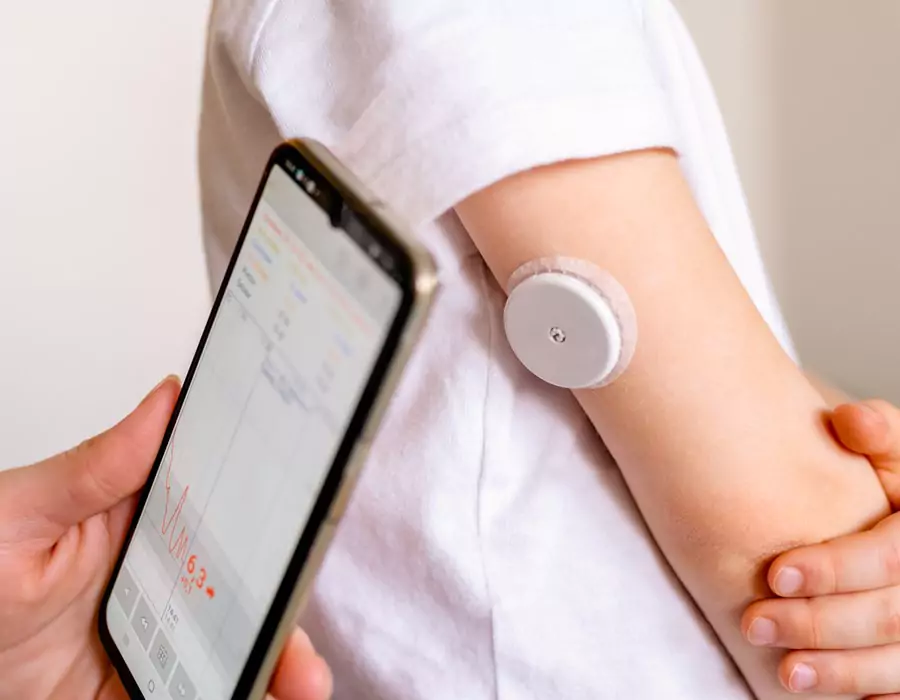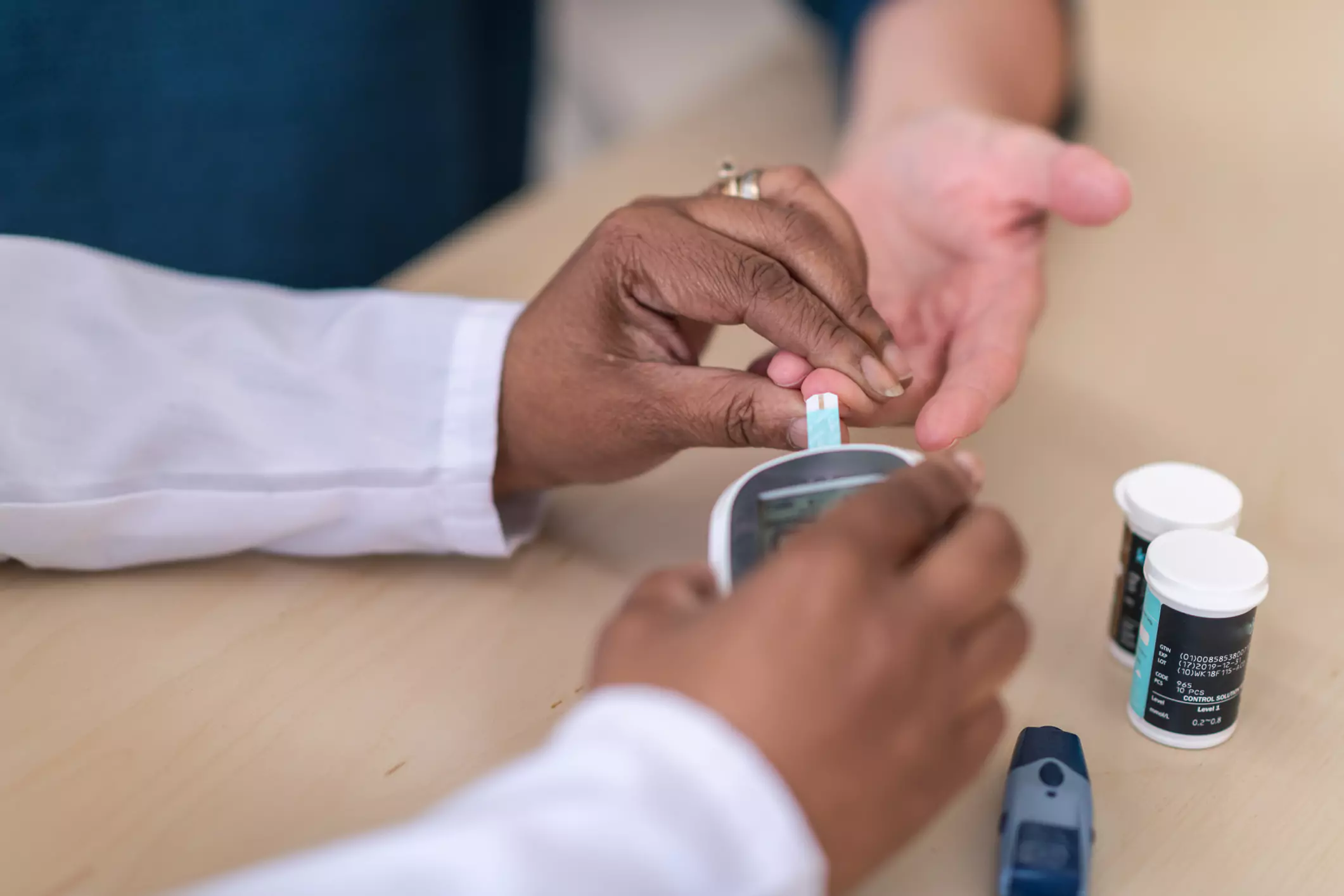
UP TO 40% OFF SITEWIDE






Diabetes and Heart Health: Let's Understand it


Table of Contents
- The Interplay of Diabetes and Heart Health: A Closer Look
- The Connection between Diabetes and Heart Diseases
- Scientific Studies on Diabetes and Cardiovascular Health
- Dietary Considerations for Heart Health in Diabetic Individuals
- The Role of Regular Exercise in Cardiovascular Health
- Medications and Therapies for Managing Diabetes and Heart Health
- Future Directions in Diabetes and Heart Health Management
- Emerging Treatments and Therapies
- The Role of Technology in Managing Diabetes and Heart Health
- Conclusion
- About The Author
Diabetes and heart health are intricately linked. The presence of diabetes can double the risk of heart disease or stroke, often striking at a younger age compared to those without diabetes. The longer one lives with diabetes the higher the likelihood of developing heart disease.
This article delves into the physiological connection between diabetes and heart health the impact of high blood sugar levels on the heart and blood vessels and the importance of managing diabetes to maintain cardiovascular health.
The Interplay of Diabetes and Heart Health: A Closer Look
Diabetes is a condition that affects how your body uses glucose, a type of sugar you get from the foods you eat. Glucose is vital to your health because it's an important source of energy for the cells that make up your muscles and tissues. It's also your brain's main source of fuel.
However, having diabetes means that your body either can't produce insulin or can't use it effectively. Insulin is a hormone that helps the glucose in your blood enter your cells to be used for energy. When your body doesn't have enough insulin or can't use it properly, glucose stays in your bloodstream, leading to high blood sugar levels.
Over time, high blood sugar levels can cause serious damage to various parts of your body, including your heart and blood vessels. This damage can lead to a condition called atherosclerosis which is characterized by the hardening and narrowing of the arteries.
Atherosclerosis happens when fatty deposits or plaques, build up on the inner walls of your arteries. These plaques can restrict blood flow to your heart, leading to coronary artery disease the most common type of heart disease. If the blood flow to your heart is decreased, it can cause a heart attack. Similarly, if the blood flow to your brain is decreased, it can result in a stroke.
The Connection between Diabetes and Heart Diseases
But the connection between diabetes and heart health doesn't stop there. People with diabetes are also more likely to have other conditions that increase the risk for heart disease. One of these conditions is high blood pressure. Blood pressure is the force of blood pushing against the walls of your arteries.
When this force is too high, it increases the strain on your heart and blood vessels. This can lead to a heart attack or stroke. Having both high blood pressure and diabetes greatly increases your risk for heart disease. Another condition that people with diabetes often have is high levels of low-density lipoprotein (LDL) cholesterol, often referred to as "bad" cholesterol.
LDL cholesterol is bad because it contributes to the buildup of plaques in your arteries. When LDL cholesterol in your bloodstream is high, it can form plaque on the damaged walls of your arteries, contributing to atherosclerosis. In addition to high LDL cholesterol, people with diabetes often have high levels of triglycerides, a type of fat in your blood. High triglycerides can also contribute to the hardening of the arteries.
On the other hand they often have low levels of high-density lipoprotein (HDL) cholesterol or "good" cholesterol. HDL cholesterol is considered good because it helps remove other types of cholesterol from your bloodstream. Having low HDL cholesterol or high LDL cholesterol can contribute to the hardening of the arteries, increasing the risk of heart disease.
In conclusion the interplay between diabetes and heart health is complex and multifaceted. Diabetes can lead to high blood sugar levels which can damage your heart and blood vessels over time. This can lead to atherosclerosis and increase the risk of heart disease. People with diabetes are also more likely to have other conditions such as high blood pressure and high LDL cholesterol that increase the risk for heart disease.
Understanding this interplay is crucial for managing both diabetes and heart health. By managing your blood sugar levels, blood pressure and cholesterol levels, you can reduce your risk of heart disease and lead a healthier life.
Scientific Studies on Diabetes and Cardiovascular Health
The intricate relationship between diabetes and cardiovascular health has been a subject of extensive research in recent years. A deeper understanding of this connection is crucial as it can lead to more effective strategies for managing both conditions and improving overall health outcomes.
One such study that has contributed significantly to our understanding is titled "Hyperglycemia and a Common Variant of GCKR Are Associated With the Levels of Eight Amino Acids in 9,369 Finnish Men". This research delved into the association between high blood sugar levels, a common symptom of diabetes and the levels of certain amino acids in the body.
The study found that high blood sugar levels are linked with higher levels of specific amino acids. These amino acids, when present in elevated amounts can potentially cause damage to the heart and blood vessels. This finding is particularly significant because it provides a clearer picture of how diabetes can indirectly contribute to cardiovascular issues.
It underscores the importance of maintaining balanced blood sugar levels not just for managing diabetes but also for preserving heart health. Another study that has shed light on the diabetes-heart health connection is the "Association of Glycemic Status and Segmental Left Ventricular Wall Thickness in Subjects Without Prior Cardiovascular Disease: A Cross-Sectional Study".
This research focused on the physical changes that occur in the hearts of people with diabetes. The study found that individuals with diabetes tend to have thicker heart walls, specifically the left ventricular wall. This is a significant finding because an increase in the thickness of the heart walls can lead to heart failure, a serious condition where the heart can't pump enough blood to meet the body's needs.
These findings highlight the importance of regular medical check-ups for people with diabetes. Regular monitoring can help detect changes in heart health early and allow for timely adjustments in treatment plans. It's not just about managing diabetes but also about taking care of the heart.
Both of these studies emphasize the importance of managing blood sugar levels to maintain heart health. They serve as a reminder that diabetes management is not just about controlling blood sugar levels but also about monitoring and maintaining cardiovascular health. In conclusion these studies underscore the interconnectedness of diabetes and heart health.
They highlight the importance of comprehensive diabetes management which includes regular monitoring of heart health and timely adjustments in treatment plans. They also serve as a call to action for further research in this area to continue improving health outcomes for people with diabetes. Strategies for Keeping Your Heart and Blood Vessels Healthy with Diabetes
Dietary Considerations for Heart Health in Diabetic Individuals
The role of diet in managing diabetes and maintaining heart health cannot be overstated. It's a key player in the game of health and wellness and understanding its importance is the first step towards better health outcomes. A diet for individuals with diabetes is not about strict limitations or depriving oneself of favorite foods.
Instead, it's about making healthier choices, eating in moderation and maintaining regular meal times. This kind of diet is naturally rich in nutrients and low in fat and calories. The main components of a healthy diet for diabetics include fruits, vegetables and whole grains. The Mayo Clinic provides a comprehensive guide on creating a healthy-eating plan for individuals with diabetes.
The guide emphasizes the importance of making calories count by choosing nutritious foods. Healthy carbohydrates, fiber-rich foods, heart-healthy fish and "good" fats are all recommended. Healthy carbohydrates such as fruits, vegetables, whole grains, legumes and low-fat dairy products, are essential as they break down into blood glucose during digestion.
Avoiding less healthy carbohydrates such as foods or drinks with added fats, sugars and sodium, is also advised. Fiber-rich foods are particularly beneficial for individuals with diabetes. Dietary fiber can help moderate how your body digests food and helps control blood sugar levels. Foods high in fiber include vegetables, fruits, nuts, legumes and whole grains.
Heart-healthy fish such as salmon, mackerel, tuna and sardines, are rich in omega-3 fatty acids which may prevent heart disease. However, fried fish and fish with high levels of mercury should be avoided. "Good" fats, including monounsaturated and polyunsaturated fats can help lower cholesterol levels. These can be found in foods like avocados, nuts and certain oils like canola, olive and peanut oil.
However, it's important to remember that all fats are high in calories and should be consumed in moderation. Foods to avoid include those high in saturated fats, trans fats, cholesterol and sodium. These can raise your risk of heart disease and stroke by accelerating the development of clogged and hardened arteries. Creating a healthy-eating plan can seem daunting but it doesn't have to be.
The Mayo Clinic suggests a few different approaches such as the plate method, counting carbohydrates and choosing your foods. With the help of a dietitian, you can create a diet that suits your health goals, tastes and lifestyle. Therefore, a well-balanced diet plays a crucial role in managing diabetes and maintaining heart health.
It's not just about what you eat but also about how much and when you eat. With the right dietary choices, individuals with diabetes can lead a healthy and fulfilling life. Remember, every step towards a healthier diet is a step towards a healthier heart.
The Role of Regular Exercise in Cardiovascular Health
The power of exercise is not just a boon for general health but it's a powerful tool in managing diabetes and promoting cardiovascular health. The benefits of exercise extend beyond weight control and include improved insulin sensitivity and better blood sugar management. These effects are crucial for individuals with diabetes as they help in maintaining stable blood sugar levels and reducing the risk of heart disease.
The Mayo Clinic, a renowned medical institution, provides valuable insights into the role of exercise in managing chronic diseases, including diabetes. According to their guidelines, regular physical activity can help improve life quality for people with chronic conditions. This includes heart disease, diabetes, depression and joint pain.
Aerobic exercise which raises the heart rate, is particularly beneficial. It can help improve heart health, stamina and weight control. Examples of aerobic exercise include brisk walking, jogging, swimming or cycling. These activities get your heart pumping and can be adjusted to suit your fitness level. Strength training is another important component of an exercise routine.
It involves activities that build muscle strength such as lifting weights or resistance training. Strength training can make it easier to perform daily activities, slow disease-related losses of muscle strength and help stabilize joints. Flexibility exercises such as stretching can help maintain joint mobility and reduce the risk of injury.
Balance exercises, like tai chi or yoga can help prevent falls, especially in older adults and people who have trouble moving. The Mayo Clinic recommends at least 150 minutes of moderate aerobic activity or 75 minutes of vigorous aerobic activity per week for most healthy adults.
This can be broken down into smaller sessions spread throughout the week. For example, you could aim for 30 minutes of moderate-intensity exercise five days a week. Strength training exercises for all major muscle groups should be done at least two times a week. This could include activities like lifting weights or doing push-ups and sit-ups. Before starting an exercise routine, it's important to talk to a healthcare provider.
They can provide guidance on what exercises are safe and suitable for your condition. For people with diabetes, for example, it's important to monitor blood sugar levels before, during and after exercise as physical activity can lower blood sugar.
Medications and Therapies for Managing Diabetes and Heart Health
The management of diabetes and heart health is a multifaceted task that requires a comprehensive approach. It involves the use of various medications and therapies, regular medical check-ups and a commitment to a healthy lifestyle. Medications and therapies play a significant role in managing diabetes and heart health.
They function in diverse ways such as reducing blood sugar levels, lowering blood pressure or reducing cholesterol levels. For instance, insulin is a crucial medication for people with type 1 diabetes and some with type 2 diabetes. It helps regulate blood sugar levels and prevents them from getting too high.
Other medications, like metformin, are often the first line of treatment for type 2 diabetes. Metformin works by reducing the amount of sugar your liver releases into your blood and making your body more responsive to insulin. In addition to insulin and metformin there are other classes of drugs that can be used to manage diabetes and heart health.
Some of these drugs help your pancreas release more insulin, while others prevent the production and release of glucose from your liver, meaning you need less insulin to transport sugar into your cells. Some drugs block the action of stomach or intestinal enzymes that break down carbohydrates, slowing their absorption or make your tissues more sensitive to insulin.
While these medications are essential they are not a substitute for a healthy lifestyle. Regular exercise, a healthy diet and maintaining a healthy weight are crucial for managing both diabetes and heart health. Regular physical activity can help prevent prediabetes and type 2 diabetes.
It can also help those who already have diabetes to maintain better blood sugar control. A healthy diet, rich in fruits, vegetables, lean proteins and whole grains can help manage blood sugar levels and lower the risk of heart disease.
Regular medical check-ups and medication reviews are also crucial to ensure that these treatments are working effectively. During these check-ups, your healthcare provider will monitor your blood sugar levels, blood pressure and cholesterol levels. They may also recommend regular A1C testing to measure your average blood sugar level for the past 2 to 3 months.
This can give a better overall picture of how well your diabetes treatment plan is working. So, managing diabetes and heart health requires a combination of medications, regular check-ups and a commitment to a healthy lifestyle. It's important to work closely with your healthcare provider to develop a treatment plan that works best for you.
Remember, while medications can help manage your conditions they are not a substitute for a healthy lifestyle. Regular exercise, a balanced diet and maintaining a healthy weight are just as important in managing diabetes and heart health.
Future Directions in Diabetes and Heart Health Management
Emerging Treatments and Therapies
Emerging treatments and therapies are offering new hope for people with diabetes and heart disease. For instance, a study titled "Cardiovascular Outcomes and Safety of Empagliflozin in Patients with Type 2 Diabetes Mellitus and Acute Myocardial Infarction" found that the diabetes medication empagliflozin can reduce the risk of heart disease in people with type 2 diabetes.
Another study, "Effects of Liraglutide on Cardiovascular Outcomes in Type 2 Diabetes Patients with and without Baseline Metformin Use: A Post Hoc Analysis of the LEADER Trial," found that the diabetes medication liraglutide can reduce the risk of major cardiovascular events in people with type 2 diabetes, regardless of whether they are also taking metformin.
These studies highlight the potential of new treatments and therapies for managing diabetes and heart health. However, it's important to remember that these treatments are not a cure for diabetes or heart disease. They are tools that can help manage these conditions but they should be used in conjunction with a healthy lifestyle.
The Role of Technology in Managing Diabetes and Heart Health
Technology is changing the way we manage diabetes and heart health. Mobile apps can help track blood sugar levels, diet and exercise, making it easier to manage diabetes. Wearable devices can monitor heart rate and rhythm, helping to detect heart disease early.
Telemedicine allows people to consult with their healthcare providers from the comfort of their own homes, making healthcare more accessible. However, technology also has its challenges. Not everyone has access to the necessary devices or internet connection. Privacy and security are also concerns. Despite these challenges the potential benefits of technology for managing diabetes and heart health are immense.
Conclusion
Diabetes and heart health are closely connected. Managing diabetes is crucial for maintaining heart health and vice versa. A healthy lifestyle, including a balanced diet and regular exercise, is key to managing both conditions. Medications and therapies can help and emerging treatments and therapies offer new hope.
Technology is changing the way we manage these conditions, making it easier to track and manage our health. However, it's important to remember that these tools are not a substitute for a healthy lifestyle and regular medical check-ups. By taking proactive steps towards managing diabetes and heart health, we can live healthier, longer lives.
About The Author
Meet Dr. Ahmet Ergin a highly skilled and dedicated endocrinologist with a passion for diabetes care. Dr. Ergin earned his medical degree with honors from Marmara University in Istanbul. He completed internal medicine residency and endocrinology fellowship at Cleveland Clinic.
Dr. Ergin is board-certified in Internal Medicine, Endocrinology, Diabetes and Metabolism due to his vast medical expertise. He's a certified diabetes educator, author of "The Ultimate Diabetes Book," and founder of "the SugarMD YouTube channel."
Dr. Ergin offers exceptional diabetes care to his patients in Port Saint Lucie, FL, helping them manage effectively. Disclaimer: These statements have not been evaluated by the Food and Drug Administration. Information on this website isn’t intended to treat, cure or prevent any disease. Discuss with your doctor and do not self-treat.
Written By Dr. Ahmet Ergin
466 total articles
Meet Dr. Ahmet Ergin, a highly skilled and dedicated endocrinologist with a passion for diabetes care. Dr. Ergin earned his medical degree with honors from Marmara University in Istanbul. He completed internal medicine residency and endocrinology fellowship at Cleveland Clinic. Dr. Ergin is board-certified in Internal Medicine, Endocrinology, Diabetes, and Metabolism due to his vast medical expertise. He's a certified diabetes educator, author of “The Ultimate Diabetes Book,” and founder of “the SugarMD YouTube channel.” Dr. Ergin offers exceptional diabetes care to his patients in Port Saint Lucie, FL, helping them manage effectively. For a closer look into his insights and experiences, connect with Dr. Ahmet Ergin on LinkedIn, Instagram, and YouTube.”
Disclaimer: These statements have not been evaluated by the Food and Drug Administration. Information on this website isn't intended to treat, cure or prevent any disease. Discuss with your doctor and do not self-treat.
Products











